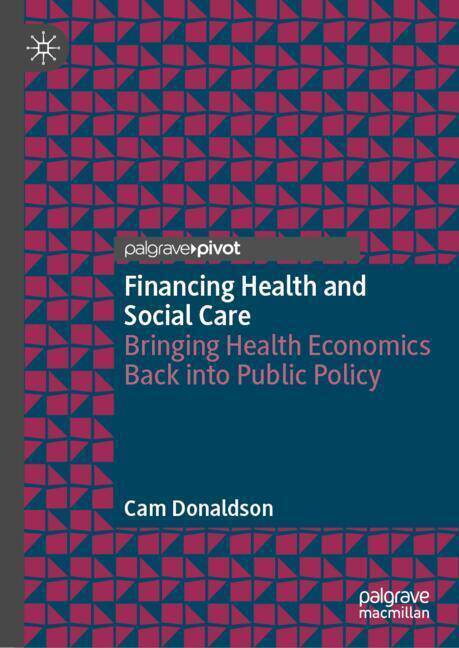
- Afhalen na 1 uur in een winkel met voorraad
- Gratis thuislevering in België vanaf € 30
- Ruim aanbod met 7 miljoen producten
- Afhalen na 1 uur in een winkel met voorraad
- Gratis thuislevering in België vanaf € 30
- Ruim aanbod met 7 miljoen producten
Zoeken
Financing Health and Social Care
Bringing Health Economics Back Into Public Policy
Cam Donaldson
Hardcover | Engels
€ 68,95
+ 137 punten
Omschrijving
Why do most capitalist economies have socialist health care systems? How can we preserve them? What would Aneurin Bevan think? These are the three main questions addressed by this book. In the 1950s, through In Place of Fear, Bevan made a strong case for a National Health Service which he had been instrumental in establishing in the UK in 1948. But he did not articulate the accompanying economic case. That case is presented here in an accessible way and extended to social care. A comprehensive understanding of 'tried and tested' means of financing health care is presented, alongside assessments of repeated and new approaches proposed in policy circles as quick fixes to funding shortfalls. This is tackled across four themes: the role of the private sector; making choices in the face of resource scarcity; workforce planning and remuneration; and preparation for pandemics. The emerging proposals carry a cost to the public purse, but must be weighed against the costs and unfairness of further disintegration. With a special focus on the UK and the NHS at a critical time for policy change, this essential book provides the blueprint for policymakers, clinical leadership and politicians needing to pay more attention to the economic issues underlying health and social care as they shape In Place of Fear 2.0.
Specificaties
Betrokkenen
- Auteur(s):
- Uitgeverij:
Inhoud
- Aantal bladzijden:
- 118
- Taal:
- Engels
Eigenschappen
- Productcode (EAN):
- 9783031867682
- Verschijningsdatum:
- 27/05/2025
- Uitvoering:
- Hardcover
- Formaat:
- Genaaid
- Afmetingen:
- 148 mm x 210 mm
- Gewicht:
- 275 g

Alleen bij Standaard Boekhandel
+ 137 punten op je klantenkaart van Standaard Boekhandel
Beoordelingen
We publiceren alleen reviews die voldoen aan de voorwaarden voor reviews. Bekijk onze voorwaarden voor reviews.











